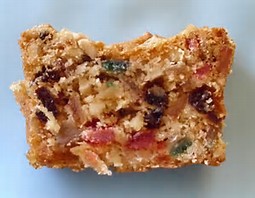FRAMINGHAM, Mass. In a non-descript building in this western suburb of Boston, the stress of the holiday season is apparent on the forehead of Mark Foutreau as he barks into his landline. “We need somebody to cover the South Shore,” he says with a no-nonsense tone. “I can’t spare anybody in MetroWest until after Christmas.”

Framingham, Mass.: They could afford nicer offices if you’d donate some money.
Foutreau’s mission is not retail sales, however, despite the many shopping plazas that line the busy state highway where his non-profit’s office is located. “It’s the neglect that breaks your heart,” he says with a pained expression. “People buy them as presents, never asking themselves whether the person they give them to can take care of one.”
But the gifts he’s talking about aren’t puppies or kittens or rabbits, which are often given at Christmas and then abandoned to die quickly in the cold New England winter. “Those animals are part of the circle of life,” he says, drawing a deep breath as he looks at pictures of rescues his organization made last year. “Coyotes get them, but no coyote is going to eat this,” he says, as he thrusts a disturbing image in front of this reporter.
The photo shows a discarded fruitcake lying in a drainage ditch, where it would have triggered spring floods and sewer clogging if it had been left in an undigested lump. “Poor kid,” he says, shaking its head. “We found it a good home, a 73-year-old man who actually likes the stuff. He finished it off by Easter.”
Foutreau is the passionate Executive Director of Fruitcake Rescue, whose mission is to stop fruitcake neglect both after the fact by placing “rescue fruitcakes” in caring environments, and before it happens by raising public awareness of the problem.

Pediatric Fruitcake Rescue Poster Child
A fruitcake is a cake made with fruit, nuts and spices, often soaked in spirituous liquors, which can lead to impaired motor skills and low standardized test scores. “Growing up in an alcoholic environment, many fruitcakes start off several steps behind other baked goods,” says Amy Bilboff, a professional fund raiser brought in to help Foutreau with a fund-raising drive. “Yes there are a lot of other great charities out there asking for your money, but this is the only one doing the Lord’s work of getting me a new Audi.”
Fruitcakes date from ancient Rome, when pomegranate seeds, pine nuts and raisins were mixed into barley mash to form circular objects that were used as chariot wheels when they went unconsumed despite being distributed in “bread and circuses” government welfare programs. “How can this stuff be any good,” a character in a play by Roman satirist Juvenal says, “they’re giving it away.”

“You’re not sticking me with that damn fruitcake!”
Because of their alcohol content fruitcakes can remain edible for many years, a phenomenon that was brought home to American television viewers in 2003 when talk-show host Jay Leno ate a piece of an 1878 fruit cake kept as an heirloom by a Tecumseh, Michigan family. “It’s good,” he said, “but not as good as the one Juvenal sent me.”



The only good fruitcake … well, there actually is no good fruitcake.